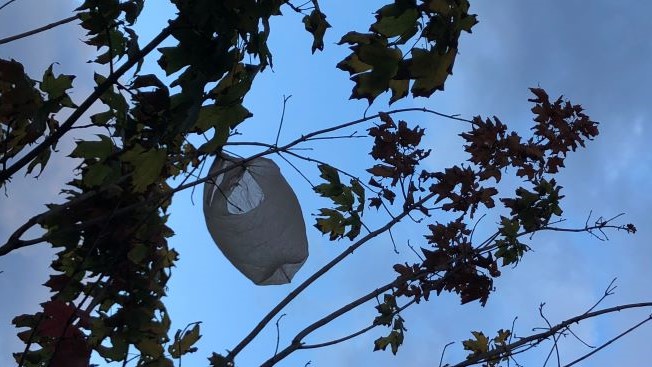
Target: Eliminate plastic bags
To eliminate plastic waste, we need retailers like Target to do their part by phasing out plastic bags.
Sign the petition
After most trips to Target, we’re left with a heap of plastic bags. This clump of plastic waste is more than just an inconvenience: It’s contributing to the plastic pollution crisis that’s suffocating the planet and killing our wildlife.
If we want to reduce plastic waste, we need to ban most plastic bags. Target should eliminate plastic bags at checkout nationwide to reduce plastic waste, protect wildlife, and promote a cleaner, greener future.
In many places, single-use plastic bags are still ubiquitous — not just at checkout lanes in grocery stores and shopping centers, but also along roadsides, rivers and parks. The discarded bags that find their way into our environment are more than just unsightly. They can also be deadly to sea life, as sea turtles, fish, birds and marine mammals often mistake them for food.
Their lightweight nature also makes them prone to being carried by wind. Even if a plastic bag makes its way into a landfill, there’s no guarantee that it’ll stay there. Picked up by the slightest breeze, plastic bags frequently make their way into our oceans, where they drift aimlessly for hundreds of years (that is, if they’re not swallowed by wildlife).
Their production is also fossil fuel-intensive, which contributes to carbon emissions and exacerbates climate change. Worse yet? Plastic bags never fully biodegrade. The environmental harm caused by plastic bags begins long before they’re stocked in retail stores and ends long after they’ve been peeled open and filled at checkout lanes.
Nothing we use for a few minutes should pollute the environment and harm wildlife for centuries to come.
With statewide bag bans already in effect across nearly a dozen states and hundreds of cities across the country, many companies have already begun phasing out single-use plastic bags at checkout.
In some states, Walmart no longer distributes plastic bags. Costco doesn’t offer plastic bags in any of its stores. Kroger Co. plans to stop distributing single-use plastic bags across its chains by 2025.
You can find almost anything at Target — including an endless supply of single-use plastic bags. As America’s sixth-largest retailer, Target can make a big dent in plastic pollution by eliminating single-use plastic bags in its stores.
To its credit, Target has publicly committed to eliminating, reducing and finding alternatives for plastic in its products. But other industry giants have taken concrete action to completely eliminate single-use plastic bags from checkout. Target should do the same.
In states with statewide plastic bag bans, Target stores have already begun offering paper bag alternatives. They’re moving away from plastic bags in some counties and states, so why not implement this policy everywhere? Clearly, it can be done.
Nearly a dozen states and hundreds of cities across the country have already saved billions of wasted plastic bags by adopting single-use plastic bag bans. Companies have followed suit by phasing out plastic bags, as the evidence is clear: Bag bans successfully reduce plastic bag use and associated litter and pollution.
When it comes to eliminating plastic pollution, the red bull’s-eye retailer is missing the mark. Target should stop using single-use plastic bags.
Call on Target to eliminate single-use plastic bags at checkout nationwide.
Sign the petition
As director of Environment Oregon, Celeste develops and runs campaigns to win real results for Oregon's environment. She has worked on issues ranging from preventing plastic pollution, stopping global warming, defending clean water, and protecting our beautiful places. Celeste's organizing has helped to reduce kids' exposure to lead in drinking water at childcare facilities in Oregon, encourage transportation electrification, ban single-use plastic grocery bags, defend our bedrock environmental laws and more. She is also the author of the children's book, Myrtle the Turtle, empowering kids to prevent plastic pollution. Celeste lives in Portland, Ore., with her husband and two daughters, where they frequently enjoy the bounty of Oregon's natural beauty.
